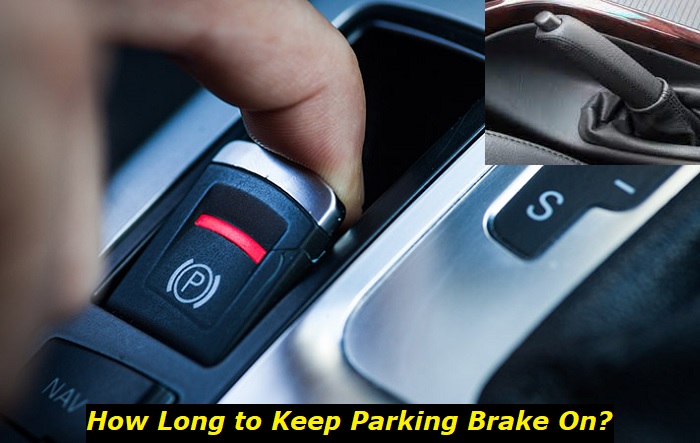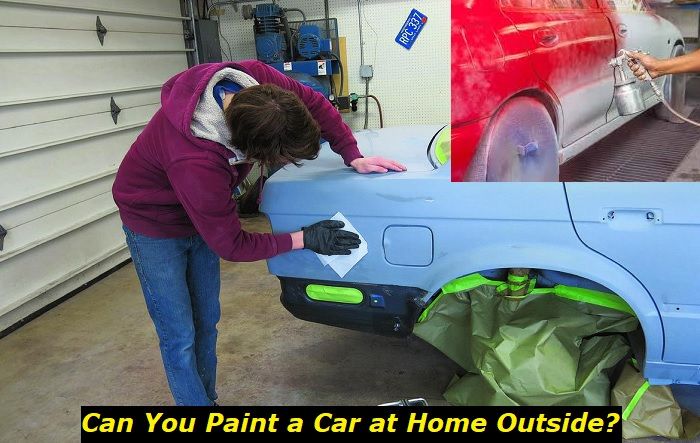Imagine if there were no parking brakes. You wouldn't be able to park on a slight incline, because there would always be a risk of your car going down the hill. Quite unpleasant, right? Fortunately, someone has thought about this a long time ago and we don't have to worry about this issue. Or do we?
Parking brake problems highlights
- Level of urgency:medium
- DIY diagnostics:possible but complicated
- DIY repairs:impossible
- Price for repair:$100 - $450
- Common symptoms:locked wheels, car rolling
- Commonreasons:EPB problems, rear pads issues, parking brake system problems
- If ignored:no parking brake, rolling back, dangerous situations

What type of parking brake does my car have?
Before talking about any kind of problem or troubleshooting, it's important to know what kind of parking brake system your vehicle uses. Even though their purpose is identical, there are multiple interpretations out there of how a parking brake should be. However, we're going to stick to just two of the most common systems you will find on cars.
1) Mechanical parking brakes
Just pull a handle and you're all set. This is one of the most common parking brake systems and it has been used for quite a long time in cars. The handle you pull from inside the vehicle pulls a couple of cables from under the car, which in turn engage the parking brake shoes. It's a very simple, yet effective solution, hence its popularity with all car manufacturers out there.
2) Electrical parking brakes
If there's no handle, there must be a button. This is exactly the case with electronic parking brakes. They do not require any cables or handles, because they usually have electric motors fitted to the rear brake rotors that engage the parking brake when the button is pressed.
This solution is great because it allows for slightly more interior space because of the lack of what can sometimes be quite a large handle and also because of the possibility of fitting the vehicle with a great option known as hill-assist control, which helps drivers whenever they set off on an incline. This option is especially useful on cars equipped with manual transmissions.
Why do parking brakes fail?
Now that you know what parking brakes are all about, let's dig a little bit deeper into this topic and find out why they fail. Here are a few of the possible causes:
- Extremely cold weather
This might seem a little bit strange, but if you think about it, it will make a lot of sense. If we're talking about extremely cold weather, things will sometimes literally freeze, which might be the case with the parking brake.
Also, if the vehicle has been driven in a both cold and humid environment and the parking brake cables are exposed to this weather or the parking brake motors' seals are bad, this humidity might reach into them and it will get them stuck.
- Lack of lubrication
Even if the weather isn't that extreme where you live, if you use the parking brake very rarely, its lubrication will dry out with time and because of this, they will almost certainly become stuck. Still, think it's a good idea to not use the parking brake?
- Parking brake not adjusted properly
This usually happens with mechanical parking brakes and usually after some work has been done on this system. After replacing worn components, the parking brake must always be adjusted and if the adjustment is not done properly, the parking brake will either not hold the vehicle as it should or it will engage too soon, sometimes remaining slightly engaged even if the handle is all the way down.
- Stretched/broken cables
With time and usage, this is a common issue when it comes to mechanical parking brakes. You can usually tell that they're the issue when you've replaced every other component in the parking brake system, yet you simply cannot adjust it properly.
- Blown fuse
Obviously, this is something that will only affect the electronic parking brakes. Check the specific fuse(s) before anything else, since they are often the reason. Sometimes, you will also get a warning light in the instrument cluster when the parking brake is not working.
- Worn parking brake shoes
Although parking brake shoes do not engage nearly as often as the brake pads, they will still wear out with time, so take this into account when diagnosing a faulty parking brake. Also, keep in mind that there are also other components, such as springs and adjustments.
- Bad parking brake button
Yes, the button itself can fail and it's not something that rare either. The good news is that replacing a bad button is way cheaper than replacing faulty parking brake motors. This is also a situation in which you might get a warning light and an error code.
- Faulty parking brake motors
When the parking brake electric motors fail, you will basically be left with no handbrake at all or it will be fully engaged. You will almost certainly encounter a warning light and an error code in this situation. Unfortunately, they can be quite expensive to replace in certain situations.
How to fix a failed parking brake?
Fixing a failed parking brake depends a lot on what type of parking brake you have. When it comes to a mechanical one, things are usually cheaper and easier to fix since there are almost no electronic systems you have to deal with.
Many times, replacing the entire system starting with the cables and going all the way to the shoes and adjustments is quite cheap and pretty much any local shop can do this for you.
When it comes to electronic parking brakes, things get a little bit more difficult. Since there's more electronic involved, we would advise you to also perform a diagnostic before doing any other troubleshooting, since it will help you a lot when it comes to finding the exact thing that's causing the problem.
An important thing you should know is that if you find yourself in the unpleasant situation of having a parking brake that is stuck and it's engaged, you can manually free it up, regardless of it being mechanical or electrical. Always check the owner's manual, especially when it comes to electronic parking brakes since they usually have a way of manually disengaging them, as a safety feature. Using a good service book might also be quite helpful since it might tell you things the owner's manual doesn't.
How to avoid issues?
As we've mentioned above, parking brakes are components that require servicing from time to time, so at some point, they will cause you issues, no matter how much you try to avoid them. However, here are a few things that might help in keeping the parking brake working well for as long as possible:
- Use the parking brake regularly
Many problems come from the simple fact that most people simply do not use the parking brake often enough, which causes it to stop working properly, because of things such as corrosion.
- Avoid being too aggressive with the parking brake
There's absolutely no need to pull the handbrake handle too hard when you want to engage it. If you find it too difficult to pull up, you should consider checking for problems.
- Perform regular servicing and adjustments when needed
As soon as you hear any strange noises or if you notice that the parking brake doesn't hold the vehicle on the same inclines it used to, consider servicing it. Sometimes, a simple adjustment is the only necessary thing and it's also quite cheap and easy to do.
- Avoid extreme weather
You might find this tip not particularly helpful if you live in a place where the weather is usually very cold and humid, but if you have the possibility to avoid these conditions and to park your vehicle inside a heated garage, for example, we would definitely advise you to do so. This is also helpful for pretty much the entire vehicle and not only for the parking brake system.
For how long can the parking brake be left on?
There shouldn't be any problem if you leave the parking brake on for a longer period of time, as long as everything is in good working order and the conditions aren't too harsh. As for an exact period, well... There isn't one. Just keep in mind that something that is not used regularly will get stuck at some point and this should give you an idea of just how much it can stay engaged.
Final thoughts
Parking brakes are some of the most important components in vehicles and most people only realize just how useful they are when they stop working properly. They are not only there for comfort, but also for safety.
Imagine if a vehicle was left parked somewhere without being in gear and it suddenly starts rolling downhill. We think that no further explanations are needed and by now you already understand the importance of a good working parking brake.
About the authors
The CarAraC research team is composed of seasoned auto mechanics and automotive industry professionals, including individuals with advanced degrees and certifications in their field. Our team members boast prestigious credentials, reflecting their extensive knowledge and skills. These qualifications include: IMI: Institute of the Motor Industry, ASE-Certified Master Automobile Technicians; Coventry University, Graduate of MA in Automotive Journalism; Politecnico di Torino, Italy, MS Automotive Engineering; Ss. Cyril and Methodius University in Skopje, Mechanical University in Skopje; TOC Automotive College; DHA Suffa University, Department of Mechanical Engineering






Add comment